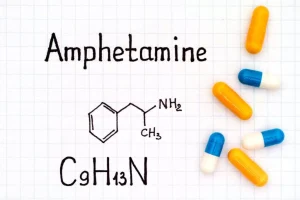
At United Recovery Project, our holistic approach to addiction treatment centers around addressing and healing theunderlying issues at the root of addiction. Once you’ve learned to recognize guilt and shame without identifying as your mistakes, you’ll begin to start socializing in a more socially hygienic way. Accepting that you are not your mistakes and moving forward in a more conscious manner is the goal of every recovering alcoholic and addict.

How To Address Shame And Guilt During Addiction Recovery
Interestingly, DBT was initially developed by psychologist Marsha Linehan for treating individuals with borderline personality disorder who often struggle with intense feelings of shame and guilt. However, its effectiveness for addressing various mental health issues has led to its widespread use today. The feeling of shame during addiction treatment and recovery is a common and unfortunate reality. However, there are several things that you can do to combat this negative feeling. Things like recognising that negative stereotypes about recovering addicts are untrue and practising self-forgiveness are the first steps that you can take to overcoming shame during recovery. The steps that you should take after these include apologizing to those that you have harmed, focusing on your addiction recovery, and creating goals that will increase your self-esteem.
- This can lead to feelings of guilt for the actions they took while under the influence or when struggling with their mental health.
- The therapist also provides individual coaching between sessions to support clients in using these skills in real-life situations.
- Although these things might be difficult to talk about, being honest about things like this can also improve the care that you receive.
- Individuals with easy access to sexual content or material may have a higher risk of developing compulsive sexual behavior.
Q: Can professional counseling help with addressing shame and guilt during addiction recovery?

When it comes to addiction recovery, the road can be long and challenging. However, it s not just about getting sober – it s about maintaining sobriety for the long haul. One unique aspect of DBT is that it emphasizes the dialectic between acceptance and change. Clients are encouraged to recognize that they can hold conflicting thoughts and feelings at the same time, such as accepting https://ecosoberhouse.com/ themselves despite their flaws while striving for self-improvement. Let’s dive into Professional Treatment Options for Shame and Guilt -because healing requires support beyond one’s own effort. Furthermore, developing a strong support system offers multiple benefits such as providing emotional support, reducing stress levels, boosting self-esteem, and increasing accountability.
The Stages of Alcoholism: Understanding the Journey from Alcohol Use to Alcohol Use Disorder
Here are six healing practices that will help you overcome shame in addiction recovery. Addressing negative emotions and understanding their power is important to recovery. Learning to identify negative emotions is the first step to stopping them. Shame reflects how we feel about ourselves; guilt involves an awareness that our actions have injured someone else.
Forgiveness is the key!
- There must be more emotional intelligence in the face of this potentially crippling feeling through open exploration and discussion of shame and anger toward oneself, others, and circumstances.
- As someone who has gone through addiction recovery or knows someone who has, you may recognize the overwhelming and often consuming emotions of shame and guilt.
- Guilt is the painful admission that you have done something wrong, but that bad behavior doesn’t represent who you are as a person.
- This type of support can take many different forms, including one-on-one therapy sessions or group counseling.
- Understanding these differences is crucial for those recovering from addiction as it can impact their progress towards sobriety.
- Don’t let shame and guilt hold you back in addiction recovery; learn how to address suicidal thoughts in addiction recovery today to create a brighter tomorrow for yourself.
Volunteer for a cause you care about, pursue a hobby that brings you joy, or learn a new skill. These activities can improve your self-esteem and reduce negative self-perception. Create a list of your values and qualities that you admire about yourself. Remind yourself of these qualities when you start to feel identified by past actions. Work toward letting go of self-blame and embracing a sense of forgiveness for yourself and others involved in your journey.

Find The Healing You Need

Although these things might be difficult to talk about, being honest about things like this can also improve the care that you receive. There are many damaging and negative stereotypes guilt and shame in recovery out there about people recovering with addiction, but I won’t mention any of them here. It is important to recognise and understand that these stereotypes are untrue.
Identifying negative emotions is essential for stopping them
In turn, this is linked to depression and the use of drugs and alcohol as a form of self-medication. Recognize that struggling with guilt and shame is a common experience in recovery. Furthermore, both Yoga and exercise create an opportunity for positive self-talk, replacing negative thought patterns with messages of strength, resilience, and positivity. With repeated practice, individuals may begin to see themselves in a different light through increased self-awareness. Ready for even more options when it comes to healing from shame and guilt?
Self-compassion involves treating yourself with kindness and understanding, just as you would a friend in a similar situation. Recognize that everyone makes mistakes, and these do not define your worth. Self-forgiveness is a crucial aspect of this process, allowing you to acknowledge past mistakes while also giving yourself permission to move forward. People with continuous, deeply felt shame of themselves tend to be isolated, with closely held feelings of being unlovable and unworthy.

